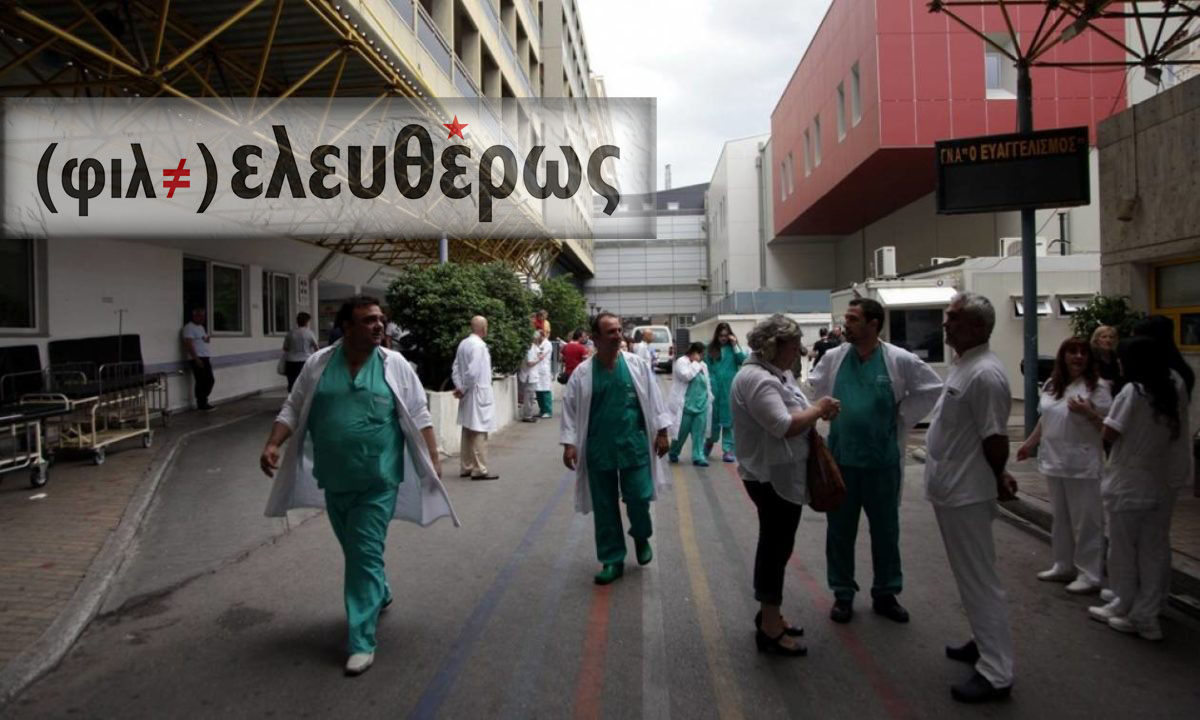
Translated by Margarita Pipinos
Everyone knew me. Doctors, the nurse, the patient transporter, the lunch lady, the janitor, the doorman, and the hospital administrator would all talk to me. My mother played a huge role in all of this. She knew them all. We would go upstairs, I would settle myself into a desk, and I would observe people while painting. The sick and the staff in battle against disease. At these frontline hospitals, none of the providers fit the cliché of the “lazy civil servant.” Everyone was working extra hard. A single nurse provided for 40 patients. One janitor for an entire department. One patient transporter for the whole building. This is the NHS. The NHS is its people.
My mother retired after 35 years of giving. She was tired. Just like the NHS. She could no longer bear having to work weekdays, weekends, nights on-call and holidays spent in the frontlines, making the impossible possible, to save lives, to say goodbye to the many dying patients, without infrastructure, without support, without help from the perpetually absent political leaders. And most of all, she couldn’t tolerate the storm of the decline in quality that came with all the budget cuts that were performed during the years of the economic crisis.
And yet, despite her sore feet, we had to fight tooth and nail so that my mother would not declare herself a volunteer for the COVID units. At her advancing age, she would have voluntarily returned to the massacre.
Those who try to reap the benefits of the colossal efforts of these workers, claiming that in nine months they have fixed what they themselves had demolished for decades now, are unscrupulous opportunists. During the storm, these opportunists ask the people to serve in the COVID units and promise support in the future, while after the storm, they will again leave the hospitals broken, to be supported only by the few invisible, simple, everyday heroes, like my mother with her sore feet.
My mother with her sore feet is the NHS.